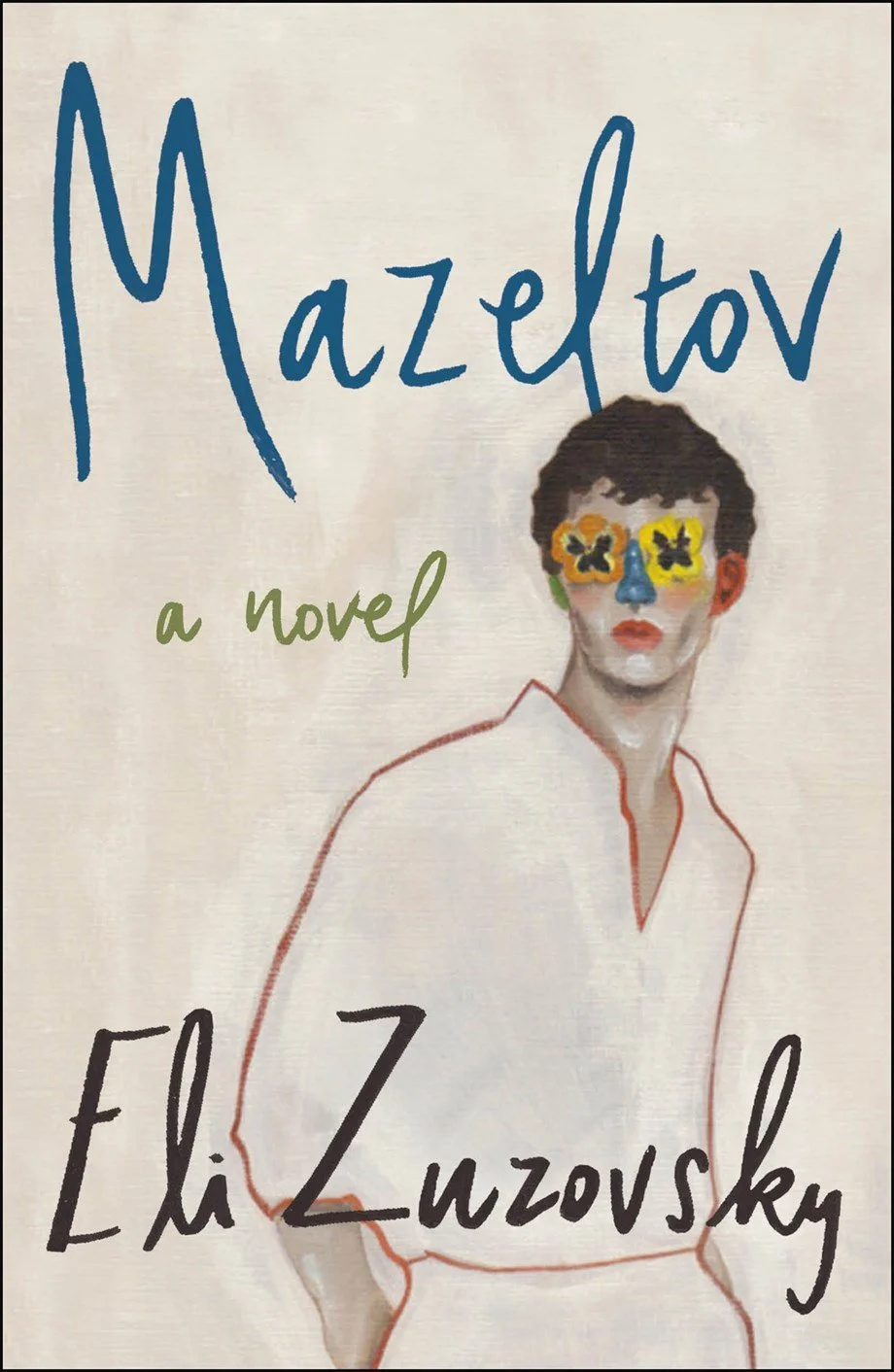Mazeltov by Eli Zuzovsky
Review of Mazeltov by Eli Zuzovsky
Mazeltov by Eli Zuzovsky (2025). Published by Henry Holt and Co.
Back in early 2023, I used to be all over the advance copies I’d receive through NetGalley. Back then I had less jobs and was more committed to the blog, so I was able to get through the books I was receiving like they were water and I was a dehydrated woman.
But this isn’t my full-time job, although I wish I could be talking about how much I love books to the Internet forever, and life happened. Recently I was going through my advance copies (that were no longer advance copies), and picked up some new ones, so I decided it was time to kick this part of my blog back up again.
Mazeltov is one of the books I recently acquired at the time of writing this. This review will come out on its release date, but I wanted to read this book because I was interested in the fact it was set in contemporary Israel, but also because it was an LGBTQ+ Jewish book set in Israel. That’s a fascinating combo to me.
It’s a brief read—it took less than two days for me to get through the book. I found it pretty accessible and easy to read, and I didn’t want to give up halfway through. That’s a sign I didn’t hate it upfront.
Let’s get into the review! But first: I would like to thank NetGalley, the publisher of the book (Henry Holt and Co.), and the author for providing me a copy of the book in advance of its release date.
A young boy in Israel comes of age and slowly realizes his sexuality.
The main character of this novel is Adam Weizmann, who is at that uncomfortable age of 13 where he’s starting to question who he is and what he wants from his own life. Living in Israel, he goes to school and has a fairly ordinary life outside of his inner troubles.
We see snippets of how he is at school and with his best female friend. Most notable early on in the novel is an incident that happens when he’s performing a theatrical number with some classmates, and how he feels isolated already when it comes to who he is as a person.
But when it is time for his bar mitzah, things are going to become even more chaotic. Something big is about to go down in the middle of what is supposed to be a hallmark ceremony in one’s coming-of-age, and it exposes so many things beyond what is happening with him.
A key part to note about this novel is that it doesn’t exclusively stay in Adam’s perspective throughout the course of its pages. We get to see relatives, friends, and other people commenting on his boyhood and his coming of age, leaving us to see how he is interpreted through the perspectives of other people.
For example, we see how his father is reconnecting with Judaism and his own faith, and how that creates a ripple effect in his life too. Faith plays a role in understanding how sexuality is perceived and Adam’s own struggle with coming to terms with who he is.
Another interesting perspective to me brought into the fold is the Palestinian poet Khahlil. His entrance into the story marks a departure from everything else, while showing there are alternative ways to live and see the world. It’s easy as a child to see how everything is an echo chamber.
I’d describe this book overall as a journey. There are a lot of moving components to people’s lives, and by stepping out and away from the main character, we then get to see more about how everyone and everything is connected in a plethora of ways.
Overall Thoughts
This is one of those novels where I came with an open mind, and I didn’t love the novel, but I don’t think it was bad either. The writing itself is great, although it leans more towards simplicity and reminded me more of a young adult book rather than a literary fiction novel. That’s how I read it so quickly.
That said, I can see people loving this book or hating it. I thought the fragmented narratives that are connected worked, but I wished we just stayed in Adam’s head for a good chunk of the time. I was most interested in what he had to say, as well as the Palestinian—but that’s a novel in itself right there.
I do want to read more literature from the region as a whole, so I am glad I read this though. Diversification is important for understanding people’s perspectives sometimes, so now I’m off to Google what Yemeni books are translated into English. I can see my lack of SWANA literature on my bookshelf already!
Go pick this one up if you’re interested in the plot. It may be worth it for you.


![Jeju-do (제주도) is one of those places that reminds you of how stunning the world is
[7.12.2024 부터 7.14.2024 까지]](https://images.squarespace-cdn.com/content/v1/5ea1f794501b7153b29e7cd7/1721033601522-554E76HR01JUHDWZBJ1I/image-asset.jpeg)









